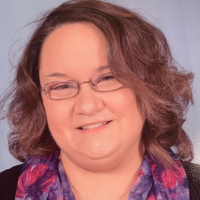
When you click on a sponsoring school or program advertised on our site, or fill out a form to request information from a sponsoring school, we may earn a commission. View our advertising disclosure for more details.
By Kimmy Gustafson Reviewed By Jocelyn Blore Updated February 15, 2024 Editorial ValuesAlcohol and drug abuse devastates those who suffer from it and their friends and families. Over 21 million Americans have at least one kind of addiction, with only 10 percent receiving treatment. The consequences of substance abuse disorders annually include 88,000 deaths due to alcohol, more than 47,000 deaths due to opioids, and more than 14,000 deaths due to heroin (Addiction Center 2022). Overcoming addiction is an uphill battle because of chemical dependency and psychological issues. Substance abuse counselors are critical to helping clients find and maintain sobriety.
Substance abuse counselors have received specialized training in counseling, the intricacies of substance abuse disorders, and the techniques to help clients succeed. Certification and licensure are available in every state to ensure counselors in this field have minimum education, training, and skill.
Typical employers of substance abuse counselors include hospitals, inpatient and residential treatment centers, government agencies, nonprofits, and clinics. Counselors must provide screening, assessment, treatment, counseling, and referrals to help clients meet their therapeutic goals.
Education requirements for substance abuse counselors vary based on certification or license, job description, or place of employment. At a minimum, counselors in this field must graduate from high school or have a GED. Earning an undergraduate degree is common, leading to more advanced certification or licensure and better job prospects. The most advanced certificates and licenses require graduate degrees.
There has been a shift in some states in the treatment of alcohol and drug offender. Instead of requiring long jail times, increasing sentences require strict substance abuse counseling. This change has been one of the driving factors in the increased demand for substance abuse counselors.
According to the Bureau of Labor Statistics (BLS 2023), there is an anticipated 18 percent increase in jobs in this field between 2022 and 2032, which translates into 71,500 new jobs (including those in mental health counseling and behavioral disorders).
The path to becoming a substance abuse counselor varies by state. Keep reading to learn a typical career path and a detailed list of state licensure requirements.
When you click on a sponsoring school or program advertised on our site, or fill out a form to request information from a sponsoring school, we may earn a commission. View our advertising disclosure for more details.

Teri Wilder is a licensed mental health counselor (LHMC) who has 13 years of experience in major mental illness, as well as addiction counseling, coping skills, and stress. Teri has worked with teens and adults who are dealing with many concerns that vary from family dynamics, work-related concerns, eating disorders, personality disorders, and ADHD.
She holds two master’s degrees in mental health and counseling and is currently pursuing her PhD in counseling education and supervision at Capella University.
Counseling Schools: What is something you wish the public understood about substance abuse counselors?
Wilder: Substance abuse counselors have an important, but difficult job. They are often at the front lines of treatment and working with individuals who aren’t just struggling with substance abuse disorders, but working with individuals who also struggle with mental health difficulties and/or major trauma. Individuals can have long-standing use histories that include the use of substances as a form of self-treatment for pre-existing conditions and untreated mental health concerns.
The challenge of a substance abuse counselor is to focus on the underlying reason for use—not just the use itself—and be able to focus on establishing coping skills, treating trauma, breaking habits and patterns, establishing a sense of safety within treatment, and focusing on family relationships that the substance use has impacted.
Sometimes, substance use counselors work with other licensed professionals to ensure that treatment meets all of the needs of the individual and requires extensive knowledge of psychopharmacology, medication-assisted treatment protocols, and knowledge of harm-reduction therapy in substance treatment.
Counseling Schools: What advice would you give to aspiring counseling students who want to become substance abuse counselors?
Wilder: To become a substance use counselor, it is helpful to take as many addictions-based courses as you can in your program or a secondary program. This will help you establish knowledge in evidence-based practices and harm-reduction techniques. Still, also, you will want to continue that education after you graduate through CEU programs and training. The field of substance use treatment is always growing and evolving with new types of treatment and techniques.
Another thing that can be helpful is to prepare yourself emotionally and mentally through your own individual therapy first. Substance abuse treatment is not for the faint of heart as it will challenge you in different ways and has a high risk of death and overdose in clients served. It is literally a “life-or-death” field of service and one in which sometimes a tough love approach is utilized.
It can also be a highly rewarding field, both monetarily and with client successes, but there can also be a number of client failures or deaths. This can be hard to deal with and hits you where it hurts, but that is why we fight every day for the lives of our clients. It can be hard for new counselors and clinicians to want to work with substance abuse clients due to feeling unprepared. Seek out the education and mentorship that you need for it, but also know it can easily become a passion due to seeing the severity of need in the field today. Every counselor is needed, and it’s an all-hands-on-deck kind of experience.
When you click on a sponsoring school or program advertised on our site, or fill out a form to request information from a sponsoring school, we may earn a commission. View our advertising disclosure for more details.